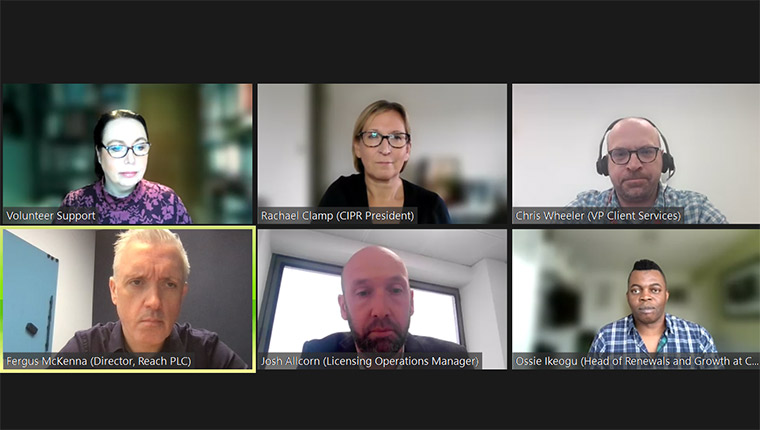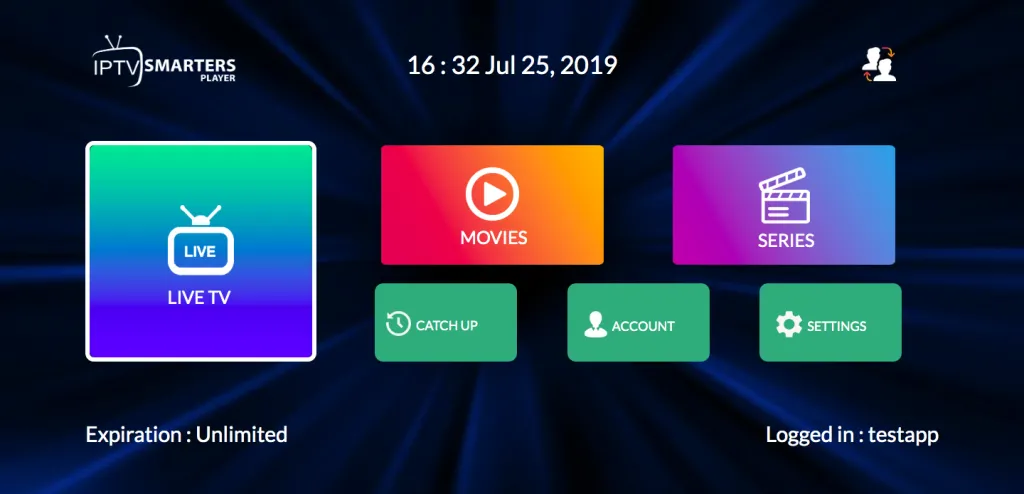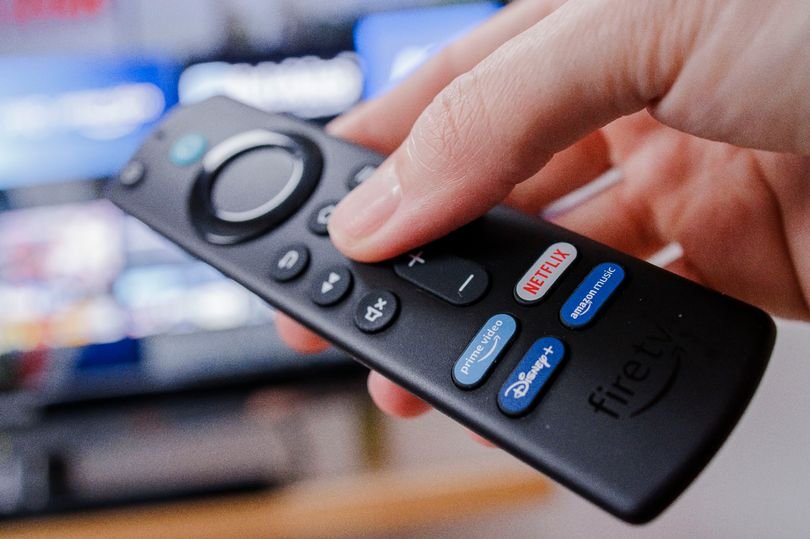
CIPR Midlands’ Licensing Roundtable, chaired by CIPR President Rachael Clamp, brought together Reach plc’s Fergus McKenna, NLA’s Josh Allcorn, CLA’s Ossie Ikeogu, and Vuelio’s Chris Wheeler to provide a rundown of the ins and outs of copyright for PRs.
While ‘there’s nothing straight-forward when it comes to licensing’ – as Ossie admitted – here is our quick guide to keep you on the right track when sharing your coverage.

Why do PRs need to know about this stuff?
‘The way we get notified of coverage is completely different now – no scanning the papers in the morning for the right words,’ said Rachael.
As well as protecting PRs from sharing content in the wrong way (and racking up fees as a result), licensing protects publishing. And every creative industry, including PR and comms, needs published content.
‘Licensing is a very important part,’ said Reach plc’s Fergus. ‘Most people’s engagement with us now will be through an app, and not directly through our printed papers or our websites.
‘Publishers need to be wary of how they manage their IP, and get the most value they can from their content. That’s why licensing organisations are vital – I don’t know if publishers would have the bandwidth to do what they do for us’.
Josh added: ‘Publishers need the PRs for the content, the publishers need the licensing bodies because they don’t have the bandwidth – we’re all part of this content ecosystem. We need each other’.
Why are there two licensing orgs in the UK, and do PRs need to be members of both?
As the panel acknowledged, some other countries are served by one all-encompassing licensing organisation, but the UK has two. Why?
NLA initially began in the mid-90s as a venture between the Financial Times and the Telegraph in a bid to find an easier way of allowing PR agencies, among others, to reuse and share their content.
‘As a comms practitioner, when you send out PR, you want to hit as broad a market as possible,’ explained Josh. ‘For publishers, there’s a broad range of rights. The NLA became a more efficient vehicle to put all that activity in one place.’
The CLA is a complimentary service, explained Ossie. But don’t get the two confused.
Formed in 1983 on the basis of Government recommendations to standardise copyright and collection of fees, CLA covers ‘everything from printed to digital formats, books, magazines – that’s our remit,’ said Ossie.
The NLA, in comparison, covers newspapers and a selection of magazines and media sites.
Wouldn’t it be easier to just have one governing licensing body in 2024? Maybe – but as Vuelio’s Chris explained:
‘There are PR clients who don’t need everything, so there are benefits to having two – less unnecessary content; more streamed down. Anything that makes this a simpler process for all is better.’
How can Vuelio help with licensing?
For support with the above – Vuelio serves as an ‘intermediary for clients and copyright organisations,’ explained Vuelio’s Chris.
‘We deliver all those clips through. Our role is reporting back to the CLA and NLA for clients – that’s what we do on a monthly basis for NLA, and quarterly for CLA.
‘We become an advisor for many PRs in this respect. We help them decide what they need. Our clients may want to monitor themselves and their competitors, without everything else. It’s about focusing on what PRs need, and getting fairness and transparency in the pricing as well.
‘We catch up regularly with the licensing bodies to understand the difficulties for our clients, and be the voice of PRs. We’re aiming to get to the point where the pricing and structure is understood by all, so it doesn’t feel like one party is inflicting something on the other.’
Should PRs be wary of the NLA and CLA?
No, said all panelists – licensing organisations are here to help both sides of the PR and media ecosystem.
‘These organisations aren’t just waiting for an infringement – you can have a chat with somebody if you need help. Much like setting up with Vuelio, it’s about finding the right thing for each circumstance,’ said Rachael.
Where copyright gets complicated…
So far, so good – but what about the more confusing parts of copyright law? With the way content is shared constantly evolving, a number of scenarios were brought up during the session. The panel had answers for each:
Sharing coverage on social safely
‘The social media explosion a few years ago muddied the waters because of how the platforms share content,’ said Josh from the NLA point of view.
‘Sharing a link to digital content on socials – there’s no IP on that. And if I want to put a link on my site, that leads traffic back to the publisher, so that’s okay, too. On X, if you’re retweeting and sharing a publisher’s post, you’re absolutely fine.’
‘But taking a headline from the article when sharing – you do need a license.’
Reach plc’s Fergus agreed: ‘If you are amplifying a publisher’s communication, they’re going to welcome that. But using the IP yourself, that’s where there is a copyright issue.’
‘Unfortunately, the CLA license doesn’t cover any social media use,’ added Ossie. ‘From my understanding, that’s been something of a minefield, we haven’t got the okay from our publishers yet. But rest assured that’s something that’s brought up every year.’
As summarised by Rachael – if you’re sharing, liking, or reposting content – that’s engagement for the publisher, and okay. But if you’re sharing for your own engagement, like a quote repost on X, you’ll need a license.
When a publisher uses your press release
As explained by Josh – if the publisher makes an alteration to the copy, the copyright moves to the publisher. With no alteration to the press release, the PR would likely need no license for sharing.
However, speaking from Reach plc’s point of view, Fergus pointed out that publishing can change the ownership: ‘The act of publishing takes on certain copyright protections. If we publish it, those are our words, that is our article. We would see that as being our piece.’
But don’t worry – Vuelio makes this very simple so you won’t get into trouble:
‘There are websites that publish press releases word for word, but Vuelio excludes them from monitoring – that wouldn’t be considered content.’
The grey area of Google Alerts
Google Alerts has changed the way coverage is shared with PRs… and sparked yet more questions around copyright.
‘We would regard a snippet that does contain a headline, or some of the text, as sharing and, in effect, as copyright infringement. And that’s where the CLA license would come into effect,’ said Ossie.
Josh agreed: ‘We have to be aware of the changes and how content is pushed out into the market. Google is obviously a free service – we have to determine what should be protected by copyright and what isn’t. A link isn’t serviceable, but an alert from Vuelio is copyright protected.
‘We are constantly looking at how technology changes and making sure our licenses are fit for purpose.’
For how Vuelio can track your coverage and ensure you’re sharing with your clients and colleagues correctly, find out more about Media Monitoring.
Find extra on the NLA in ‘The PR guide to the NLA’.


